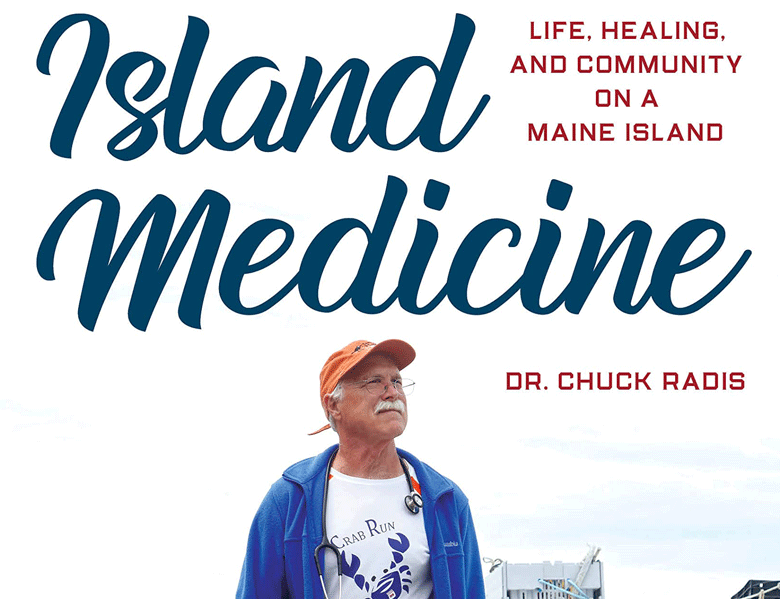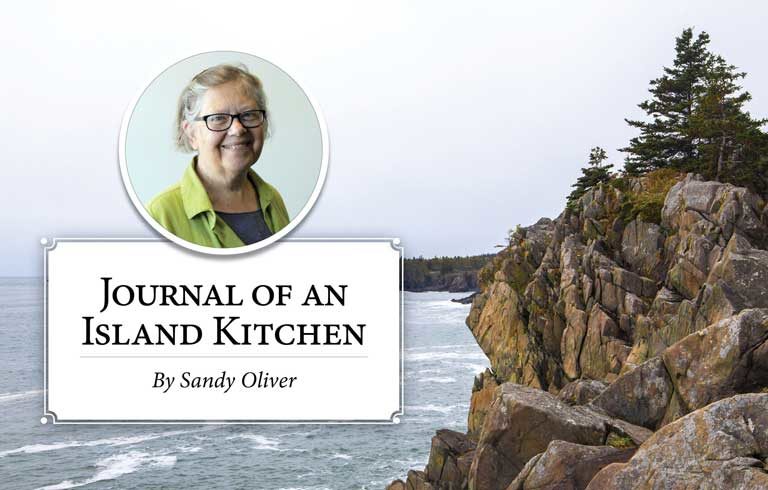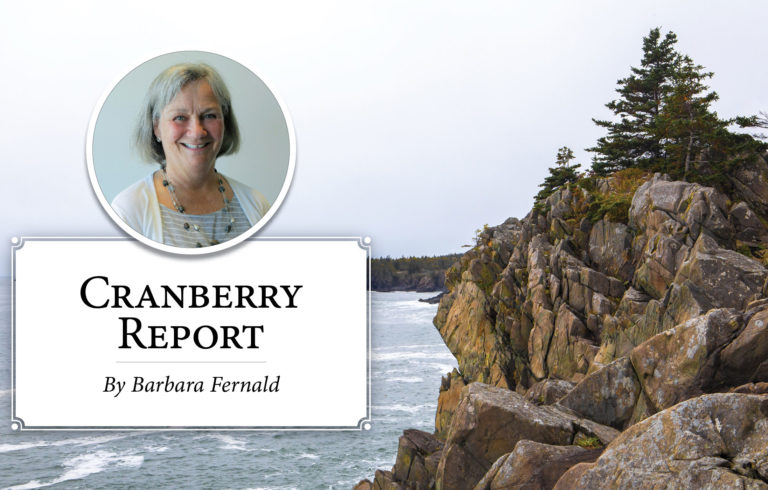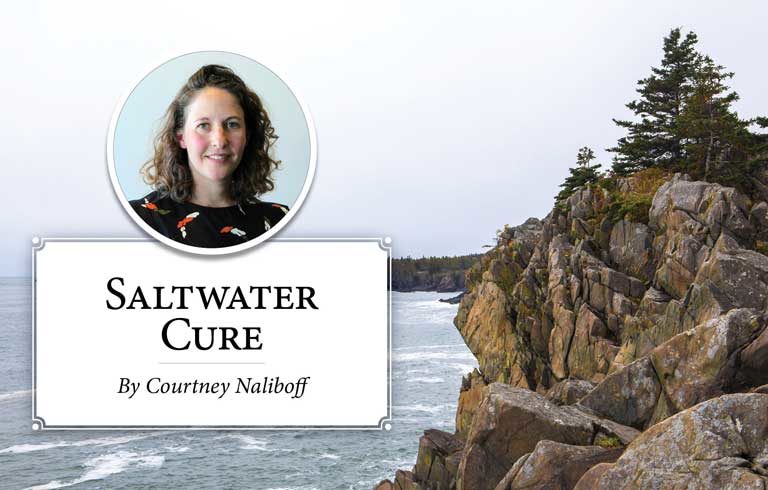Island Medicine: Life, Healing, and Community on a Maine Island
By Dr. Chuck Radis (Down East Books, 2022)
Review by Tina Cohen
Dr. Chuck Radis’s first book, Go By Boat: Stories of a Maine Island Doctor, was published in 2021. Now his second is out, Island Medicine: Life, Healing, and Community on a Maine Island. Both cover the earliest years of his practice, based primarily on Peaks Island in Casco Bay. Both include descriptions of some adrenaline-charged responses to medical emergencies as well as more intellectual, clinical considerations of diagnoses and treatments. Both books contain entertaining and empathetic portraits of island characters and small-town community life.
So why, one might wonder, write a second book so similar to the first?
Radis is, it occurs to me, a teacher as well as a practitioner, and he seems to have some lessons he wants to be sure get drilled home. I think he wanted to convey in this second book the difficult but important balancing of time and energy that needs to occur between serving one’s profession and one’s involvement in the other relationships in life—with one’s partner, family, friends, and neighbors.
Radis describes their time in couples therapy sessions…
Radis writes, “The strain of my Peaks Island and Chebeague Island clinics, caring for hospitalized patients, office hours in my Portland office, not to mention an occasional house call to the outer islands, was taking a toll. It wasn’t unusual for me to leave home before the children were awake and to return long after their bedtime. Sandi [his equally talented and hardworking spouse], sometimes for weeks at a time, was more like a single parent than a partner in an equitable marriage.”
Without sharing a lot of detail but with an honest and open approach, Radis describes their time in couples therapy sessions to address the aches and pains in their relationship. He also emphasizes the importance of maintaining old friendships, which for Radis is an annual weekend camping with male buddies in bitter winter weather.
Radis would include his daughters in his work life when possible, as certain patients, seen at home after hours, welcomed the bonus. He saw Peaks as a wonderful environment for children to grow up in. Yet, as he assessed what would be best for the family in trying to loosen the incessant demands of his work, he had a decision to make.
That is what the book closes with: preparing to move to Pittsburgh for a two-year university fellowship in rheumatology and clinical immunology, planning to then bring his expanded expertise back to Peaks and Portland.
But that wasn’t the only gain he expected. There would be the opportunity for the children to experience a school and community bound to be different from theirs in Maine. And it would allow him several critical years of more family time with his wife and daughters.
The book ends with that cliffhanger of sorts, readers left wondering how the dramatic change will go. There is one thing we know will occur—the family’s return to Peaks. Like a lighthouse in their foggy future, the island is their beacon of “home.”
Tina Cohen is a therapist who spends time on Vinalhaven.





